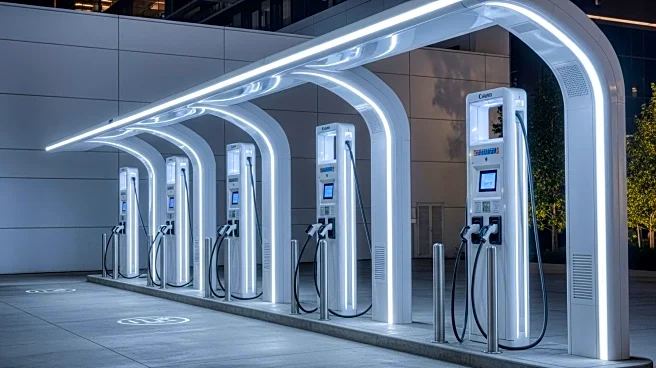What's Happening?
The European Union's recent adjustments to CO2 emissions targets have influenced trends in the electric vehicle (EV) market. Initially, automakers were required to meet stringent emissions targets by 2025, but the EU has extended the deadline to 2027. This change has led to a slowdown in battery electric vehicle (BEV) sales, with automakers inflating BEV prices due to relaxed CO2 targets. The delay in emissions requirements is expected to result in 2 million fewer BEV sales over the next few years.
Why It's Important?
The EU's decision to relax emissions targets has significant implications for the EV market. It affects the pace of EV adoption and the competitive landscape for automakers. By extending the deadline, the EU may inadvertently slow down the transition to cleaner vehicles, impacting environmental goals and consumer choices. Automakers may need to reassess their strategies to align with the new regulatory framework, potentially affecting investment in EV technology and infrastructure.
What's Next?
Automakers are likely to adjust their production and pricing strategies in response to the EU's policy changes. The focus may shift towards meeting the extended emissions targets while balancing cost and consumer demand. The EU's regulatory approach will continue to shape the automotive industry's trajectory, influencing market dynamics and the pace of innovation in EV technology.









